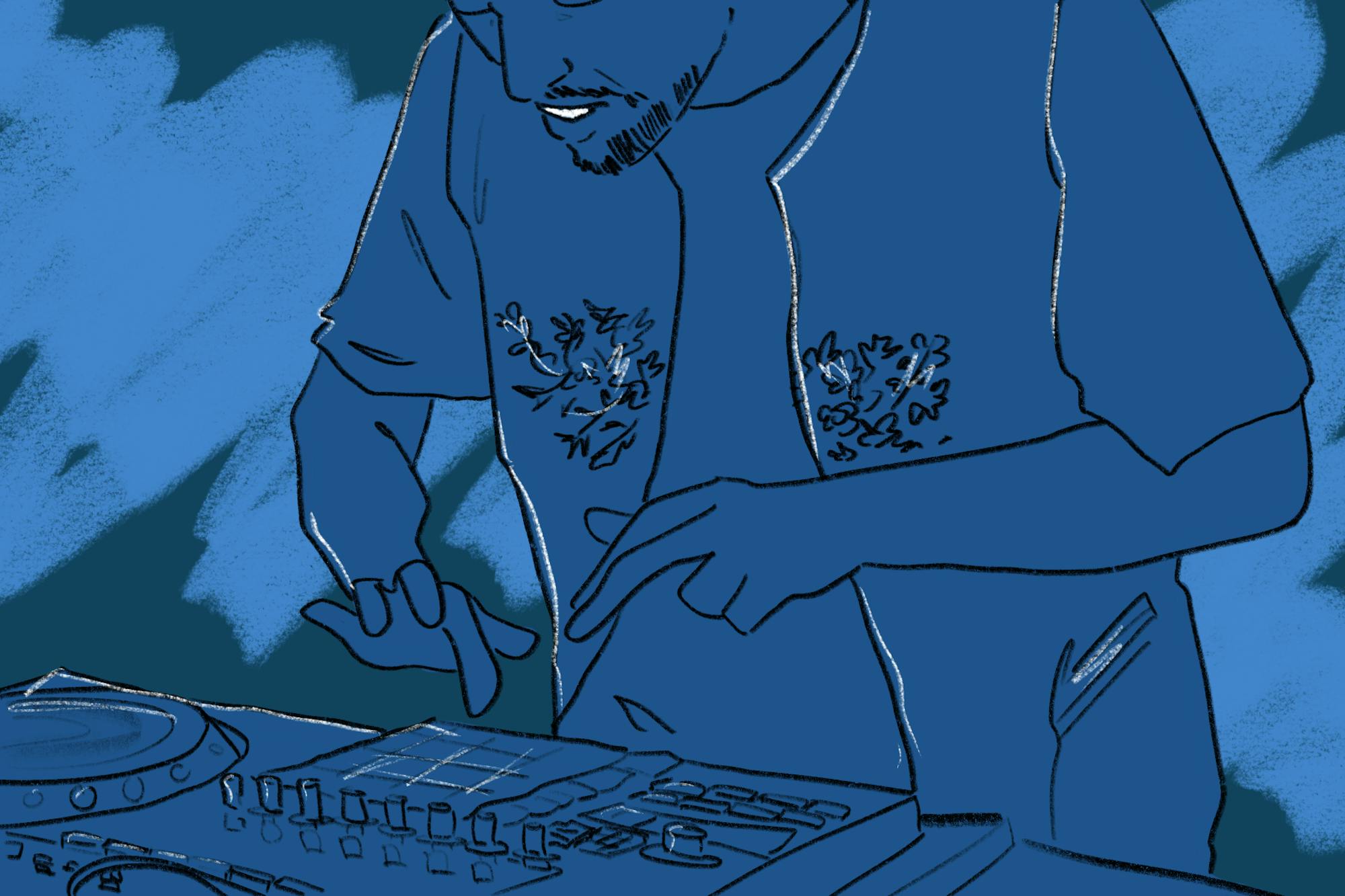I first listened to Fred Again during my study abroad in London last fall — late to the game. Fred Gibson, a British record producer and DJ, initially rose to fame during the COVID-19 pandemic, when global internet users sought comfort in the absurdity of solo jamming through what felt like the end of the world.
But then the world opened back up and, for the first time in a long time, house music emerged from discussions in underground subreddits and ingrained itself in the public discourse. Over the past two years, Fred Again has headlined at Coachella, released two EPs and sold out multiple world tours. Music critics at The New York Times began reviewing the new global phenomenon with the level of esteem typically reserved for classically-regarded musicians like Hans Zimmer or Beyoncé. Whether it was due to pure talent, his ties to Brian Eno and Skrillex or simply being in “the right place at the right time,” Fred Again put himself on the map as a musician on the up.
On April 9, 2024, Fred Again added two new songs to his 2022 album “USB”: “ItsNotREEAALLLLLLLL” and “BerwynGesaffNeighbours.” Other than country, just about every modern music genre has been used to characterize Fred Again. I would describe his latest two songs as a crossover of house and tempered-down techno.
“ItsNotREEAALLLLLLLL” starts out eerily anticipatory, slowly descending into a climactic chorus that begs your body to pulse to the tempo. The song layers heavy breathing, female vocals and typical house downtempo to create an atmospheric bricolage of cascading catharsis. “BerwynGesaffNeighbours” takes on a more euphoric and empowering effect — a mere two minutes long, the song is short and sweet. Still, it retains Fred Again’s characteristic ability to spur movement, while simultaneously inducing a God complex within its listener. Strutting across campus to the visceral, low pulsing bass of BerwynGesaffNeighbours — whatever that title even means — I feel like a sexy villain.
As a listener and critic alike, it makes intuitive sense to me to hold DJ sets in the same regard as “highbrow” forms of music — such as classical and opera. At the risk of sounding unnecessarily divisive, house feels like one of the purest forms of music. In the era of Taylor Swift and Noah Kahan, it’s rare for melodies and vocals to take a back seat to rhythm and instrumentation. Sure, you could argue that there is a tinge of sadness when you hear lyrics such as “we lost dancing” or “pull me out of this” in Fred Again’s music, but the visceral feeling of his work far outshines any lyrical resonance. For this reason, Fred Again’s EPs feel like the 21st-century equivalent of a Beethoven symphony: exhilarating and percussive, with an impressive elasticity that allows the song to shape-shift. The music’s climactic profundity stems from its movement and ability to spur movement, not its symbolic message. In the case of Fred Again, the movement is the message.
I love Fred Again for his versatility. If nothing else, house music is extremely multipurpose. Fred Again serves as an excellent backtrack for any context in which you need to dial in and mute the intrusive thoughts. Whether I’m riding public transit, grinding out a six-page essay on 16th century metaphysical poetry, jogging past Occom Pond or pre-gaming for frat row in a corset top, Fred Again always fits the bill.
Without the crutch of lyrical intellectualization, I’m forced to fall back on a description of Fred Again’s “vibes” — or, in the case of electronic music, literal sound wave vibrations. The experience of listening to Fred Again songs is difficult to articulate when his music transcends the symbolic register and heightens the real. To intellectualize Fred Again is to miss the point. For this reason, it is nearly impossible to describe house music without sounding like a douche in a Stussy beanie. Read any of my other articles, and you’ll discover just how far removed I am from the type to mix Kanye West songs in my parents’ wine cellar and title the remix “homegrown slaps.” I’m not chill like that — and by “chill like that,” I mean I’m not “incredibly cringe and insufferable in an explicitly masculine yet simultaneously emasculating way.” Perhaps this is why I enjoy Fred Again as much as I do: amongst a Discover Weekly of Big Thief ballads and Bob Dylan deep cuts, Fred Again grounds me in the sensual, rather than lyrical, aspect of music.
As someone guilty of semi-performative music consumption, I appreciate Fred Again as an outlet to simply vibe. I liken Fred Again to a physical release — a hop, a skip, a jump, a sprint, a scream or perhaps even a sneeze. It is hard to listen to house music or techno performatively when there are no deep or poetic lyrics to falsely resonate with. You either like the way the song makes you feel or you don’t — it exists in a vacuum of sounds and reverberations. To invoke Lacan, I liken the experience of listening to Fred Again to the psychoanalytic principle of jouissance — gaining satisfaction from the drive rather than the need. While the feeling is not sexual, per se, the buildup and release of house music certainly induces a different, adjacent form of physiological pleasure.
I treat Spotify like an all-you-can-eat buffet, with Fred Again as the little sweet treat at the end of a meal. Sometimes that means listening to Rumble — an extremely aggressive Skrillex collaboration with animal noises — at 2 p.m. on a Saturday, and sometimes that’s okay.
Rating: ★★★★★




